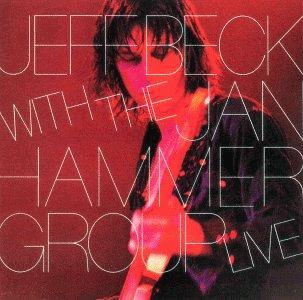
| Artist: | Jeff Beck |
| Title: | Jeff Beck with the Jan Hammer Group Live |
| Released: | 1976 |
| Label: | Epic Records |
| Time: | 44:29 |
| Producer(s): | Jan Hammer |
| Appears with: | The Yardbirds, Rod Stewart |
| Category: | Rock |
| Rating: | *******... (7/10) |
| Media type: | CD |
| Purchase date: | 2001.08.21 |
| Price in €: | 11,55 |
| Web address: | www.jeffbeck.com |